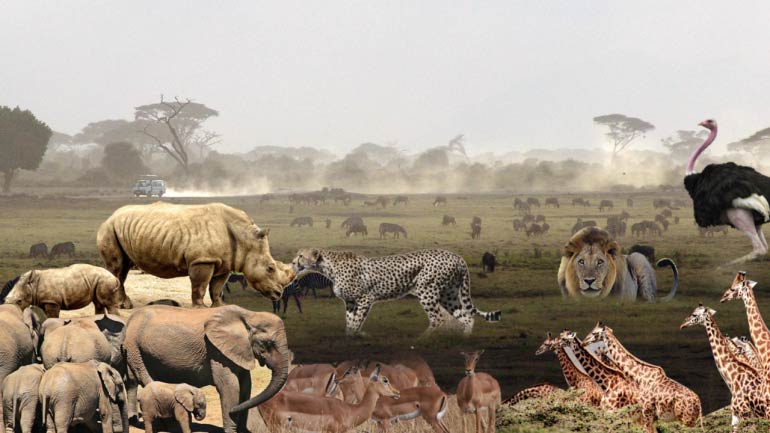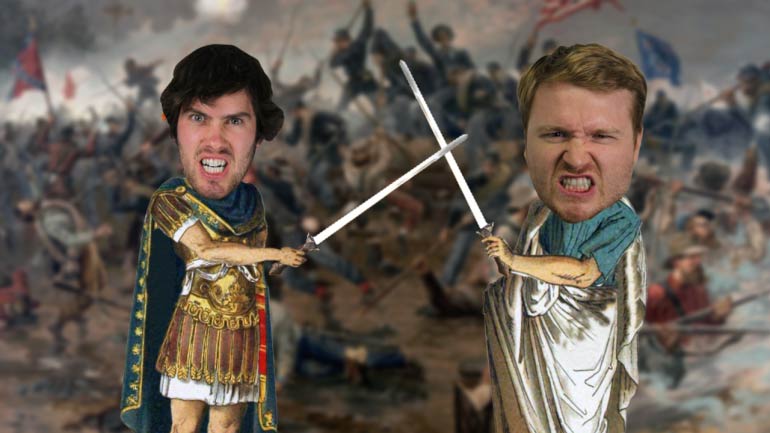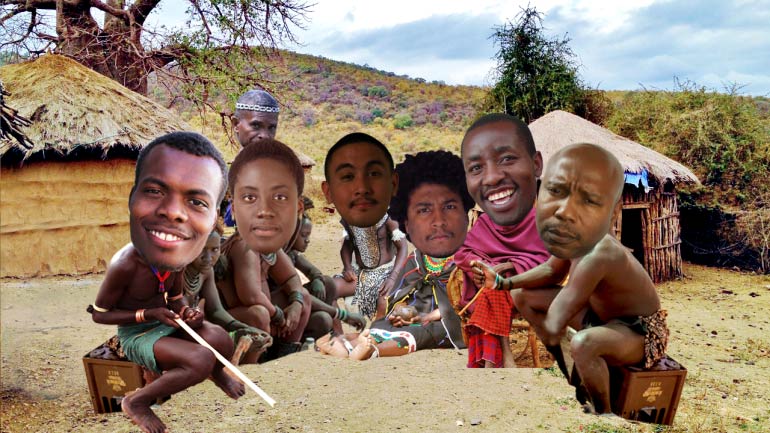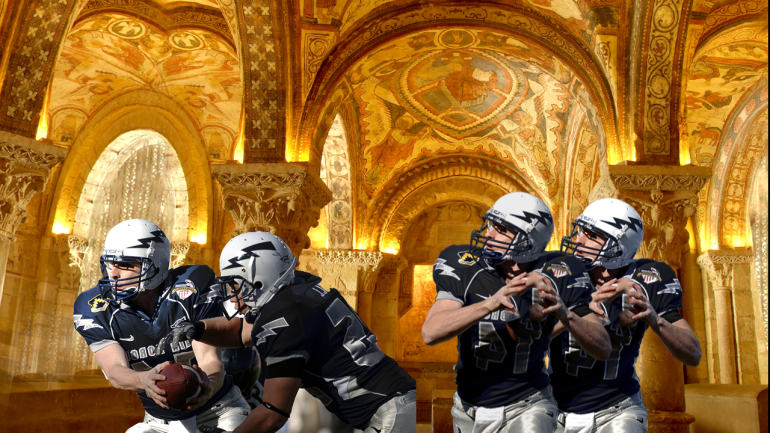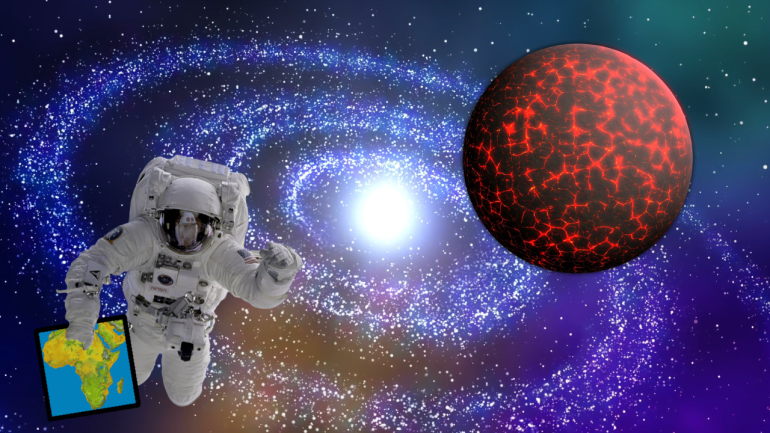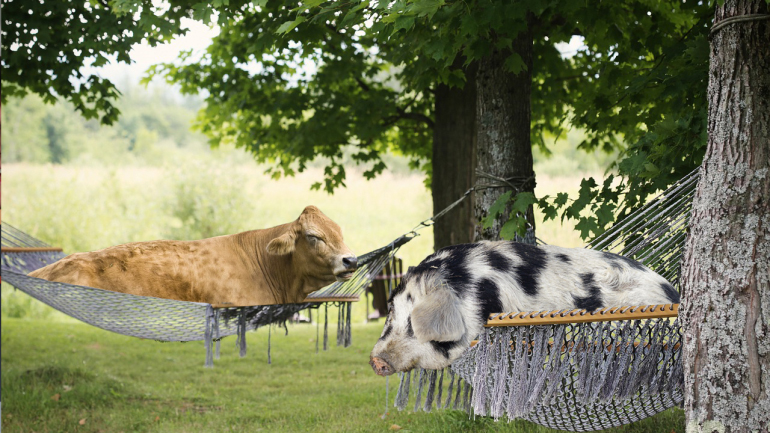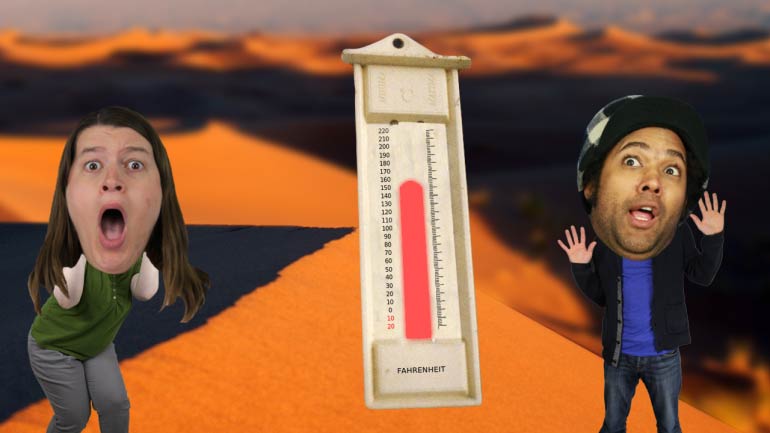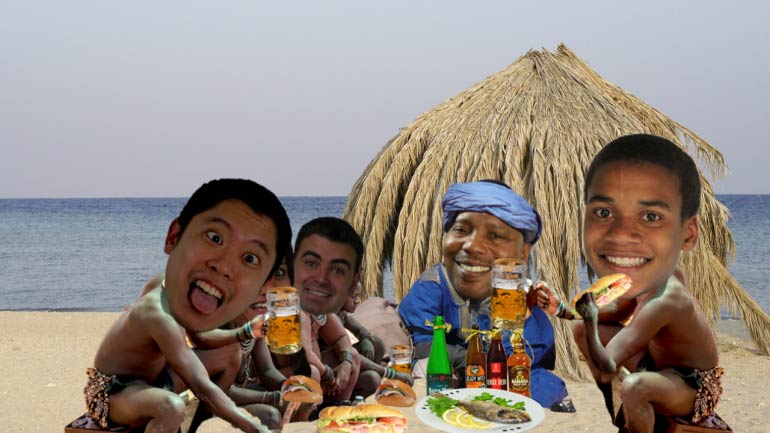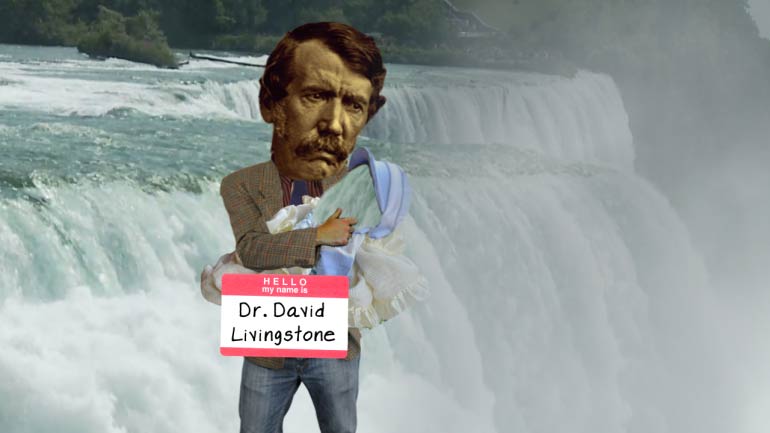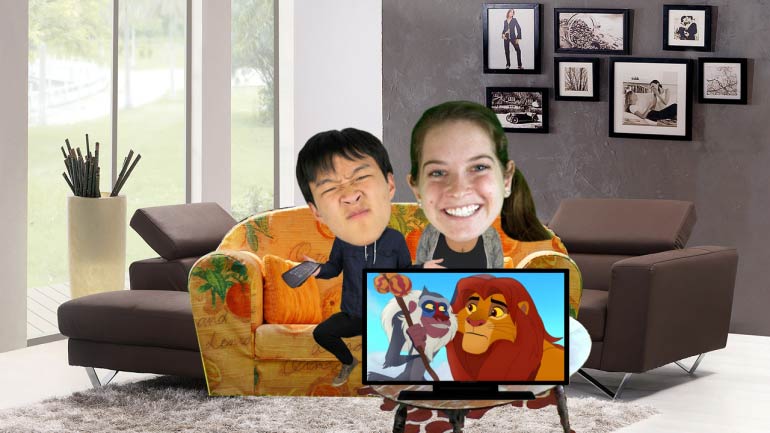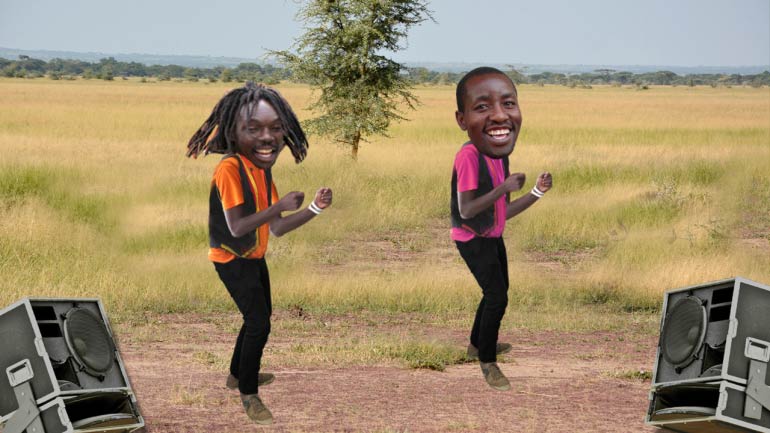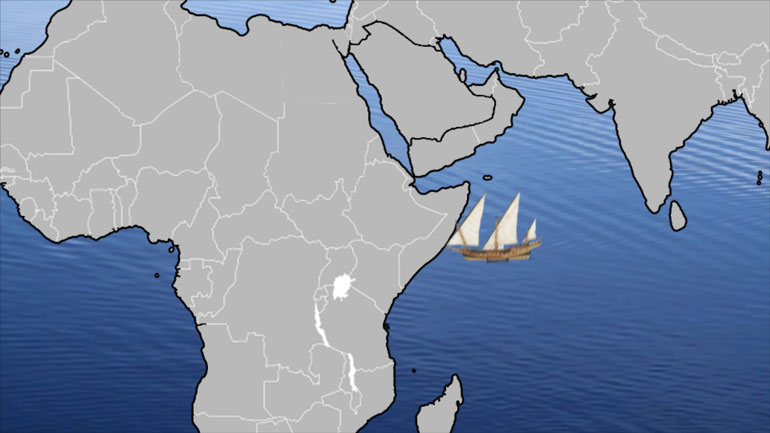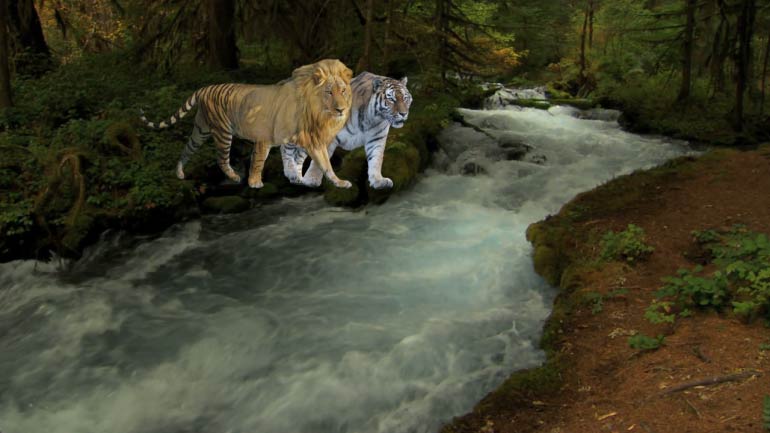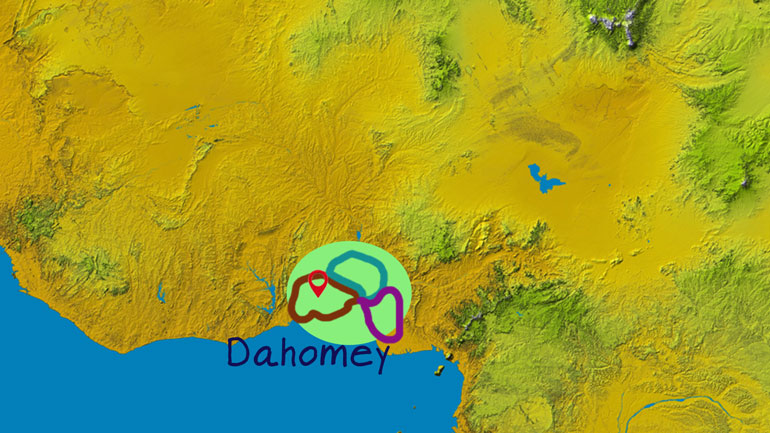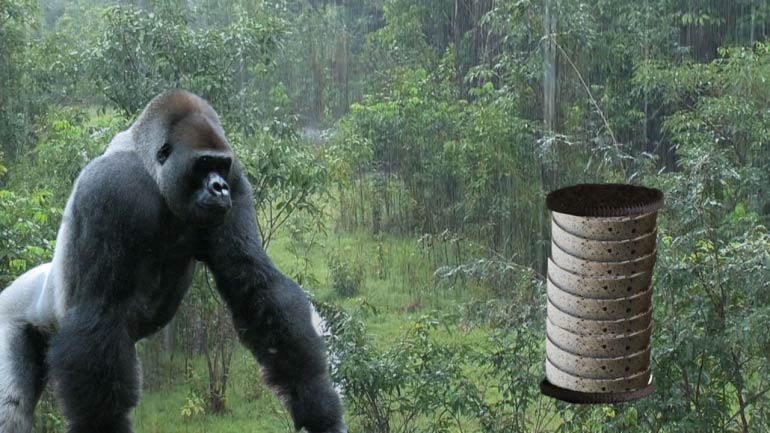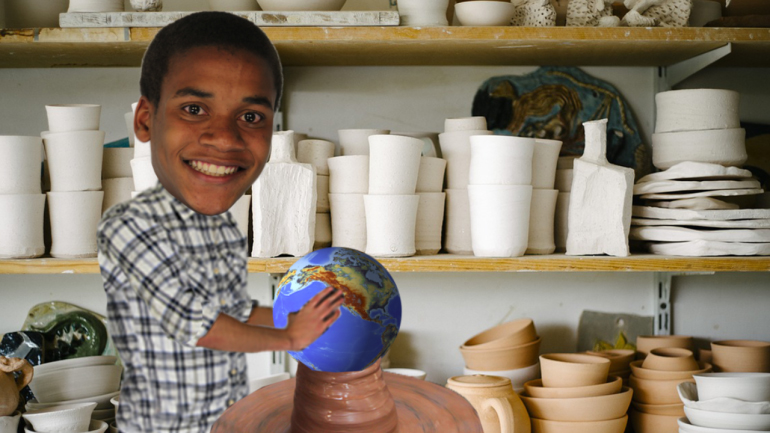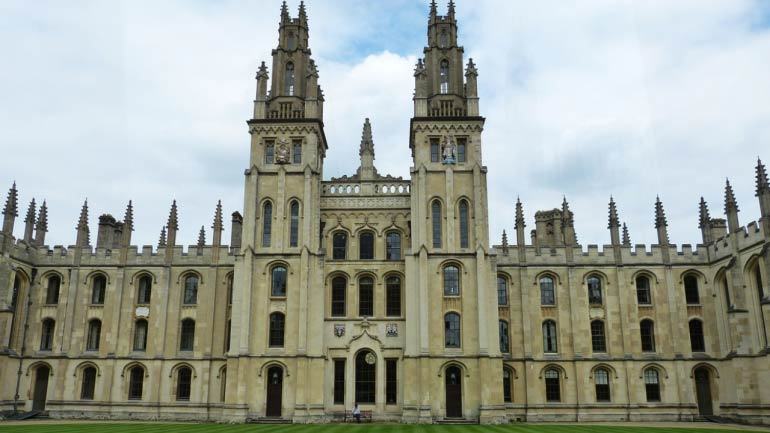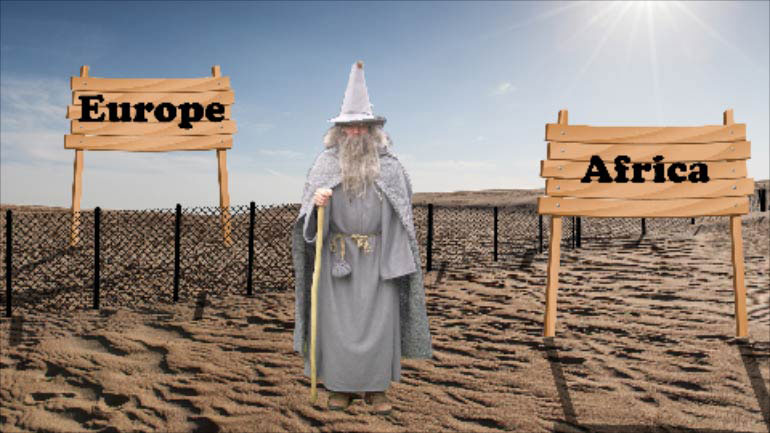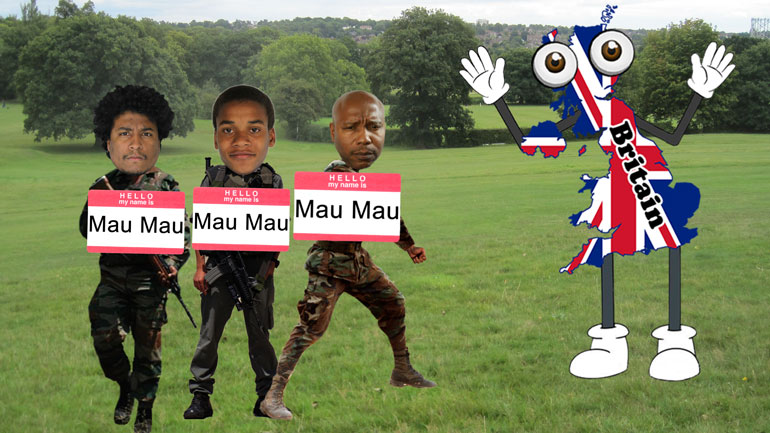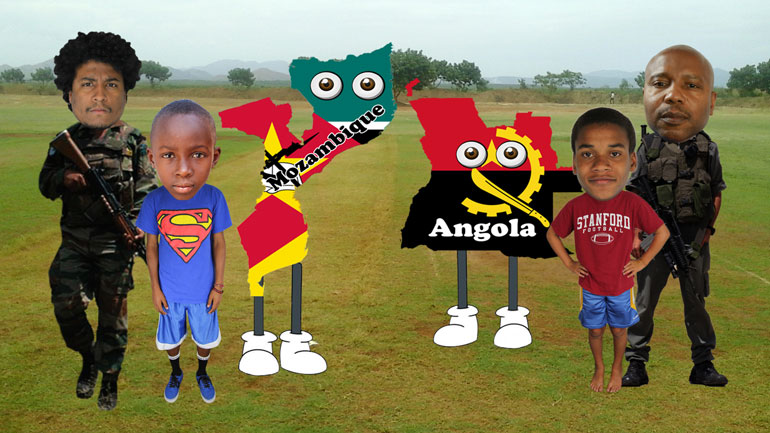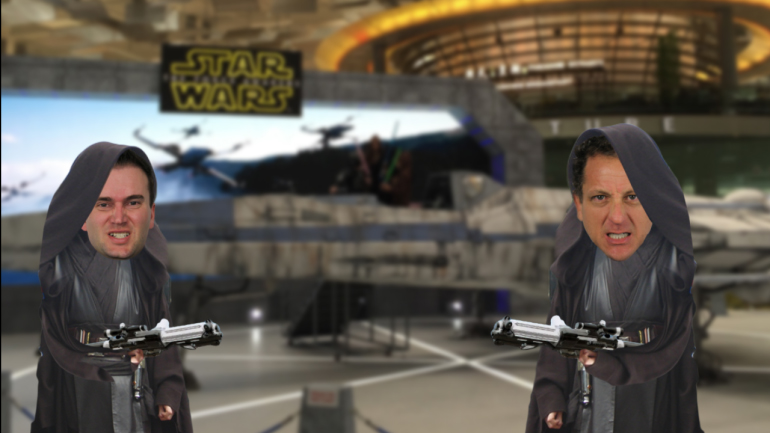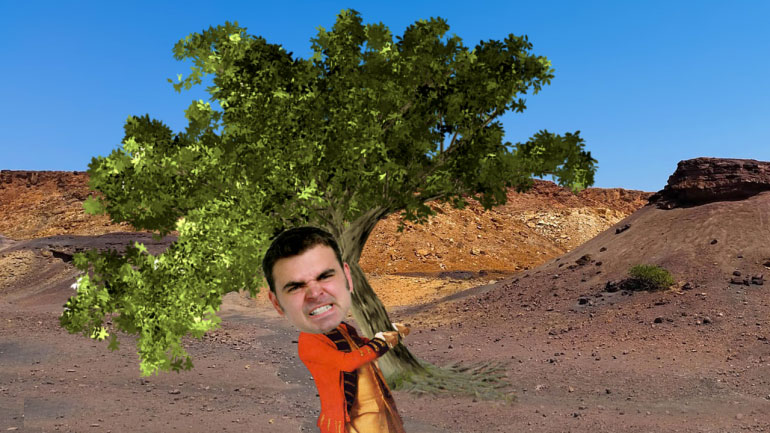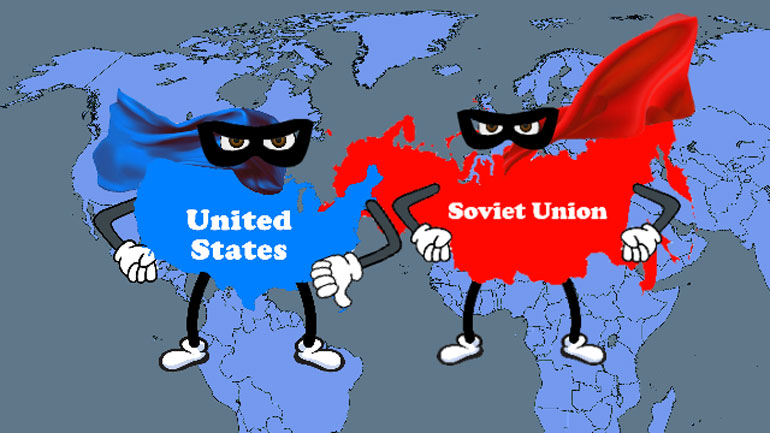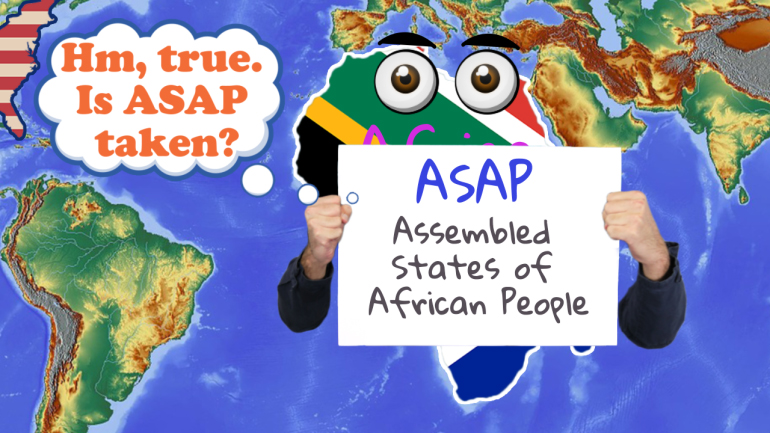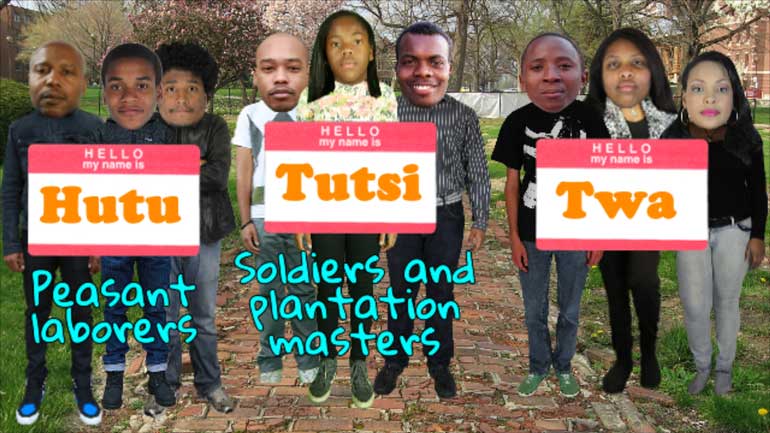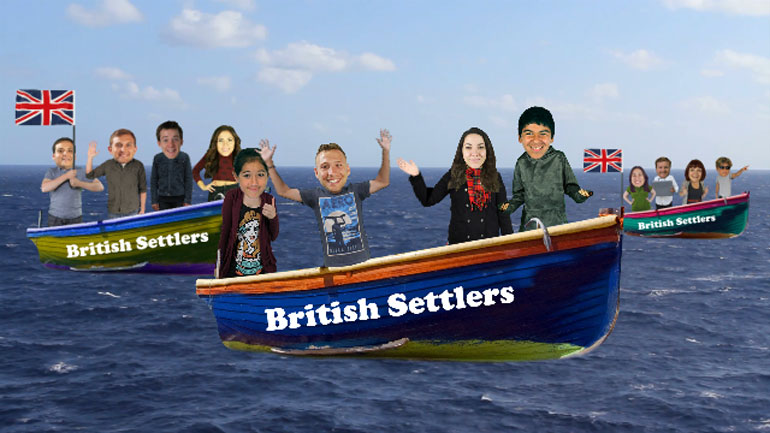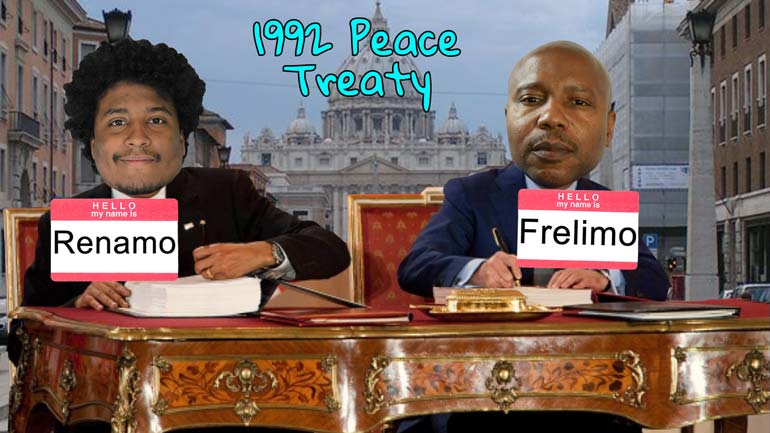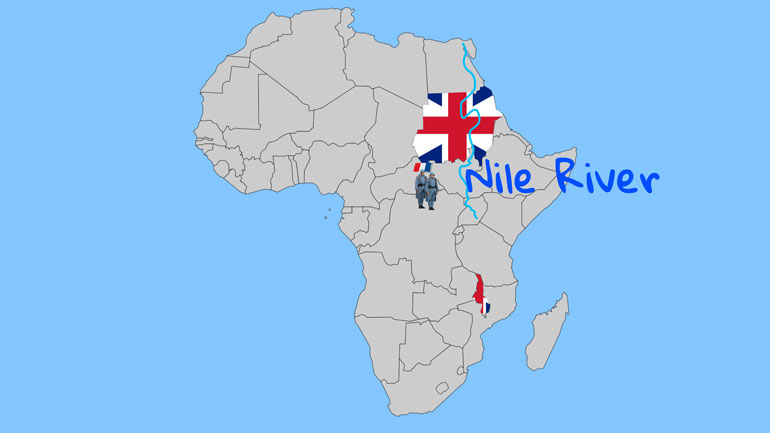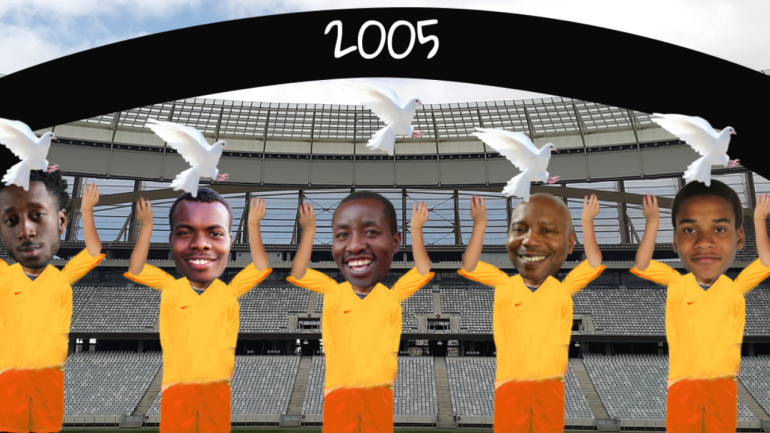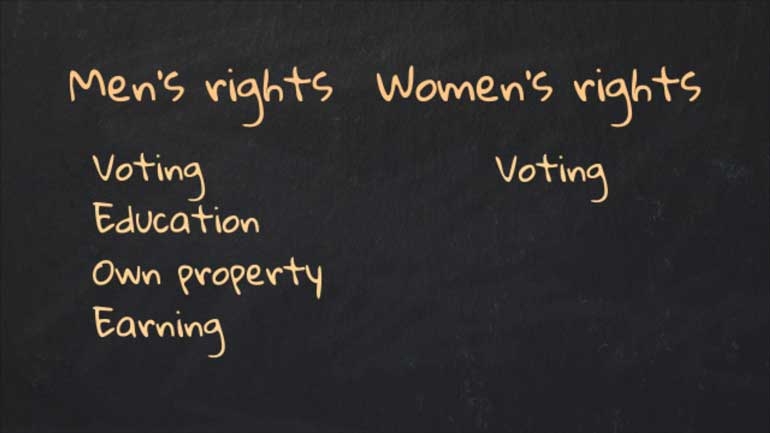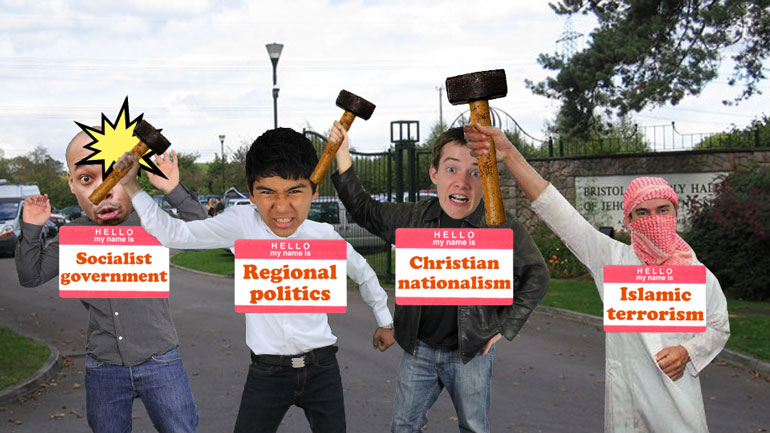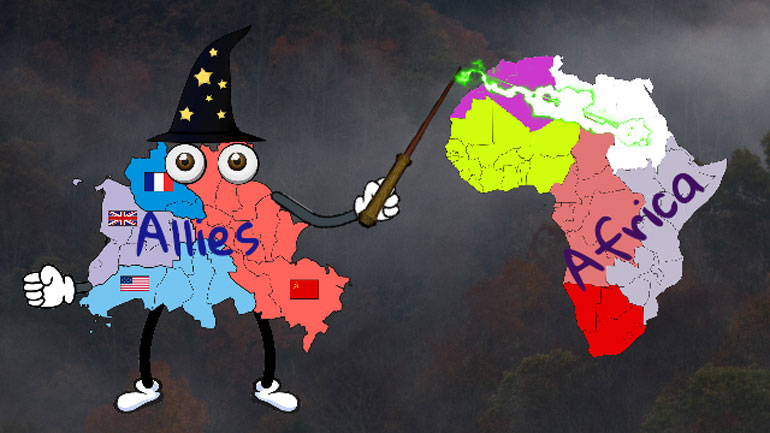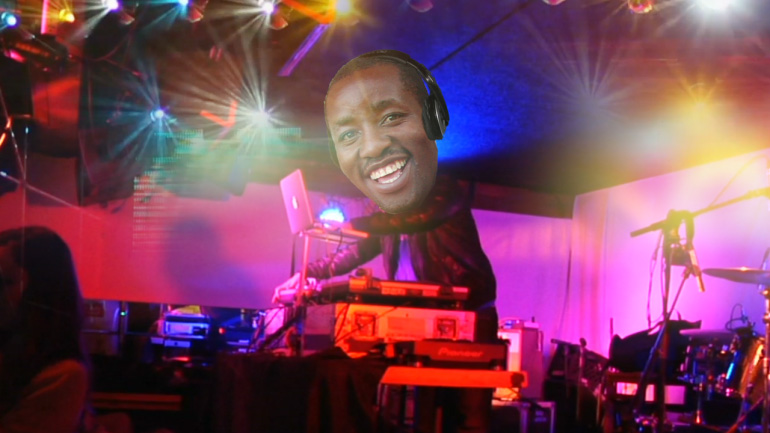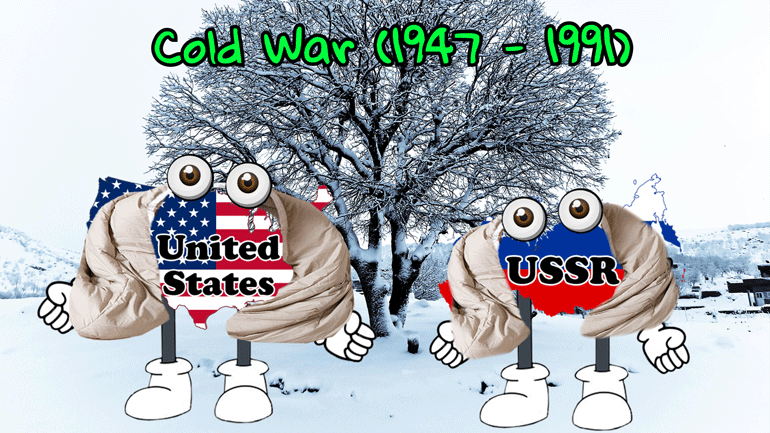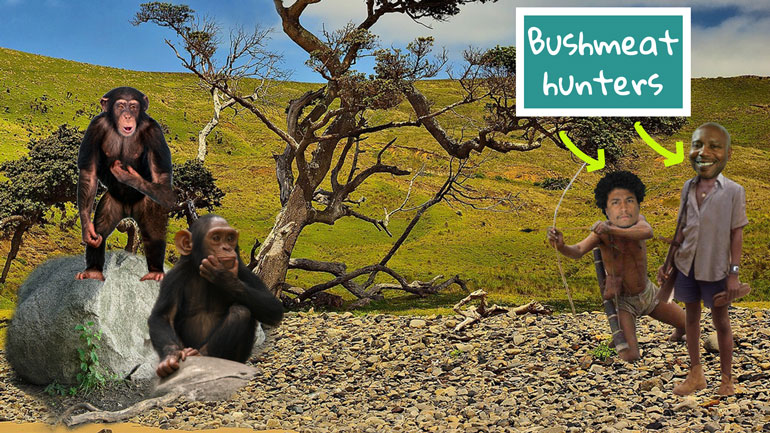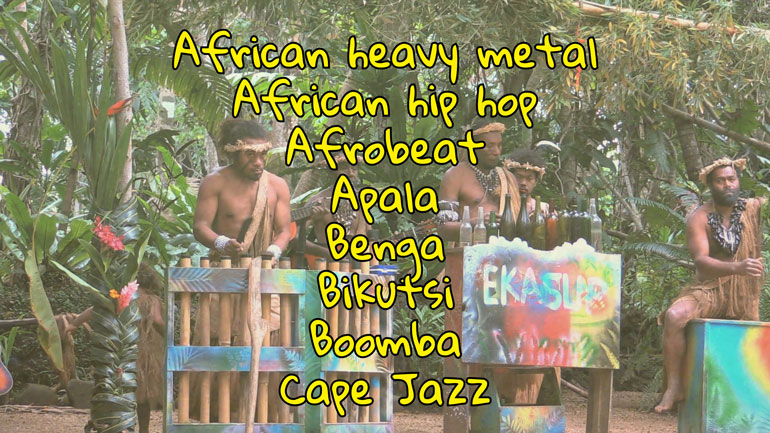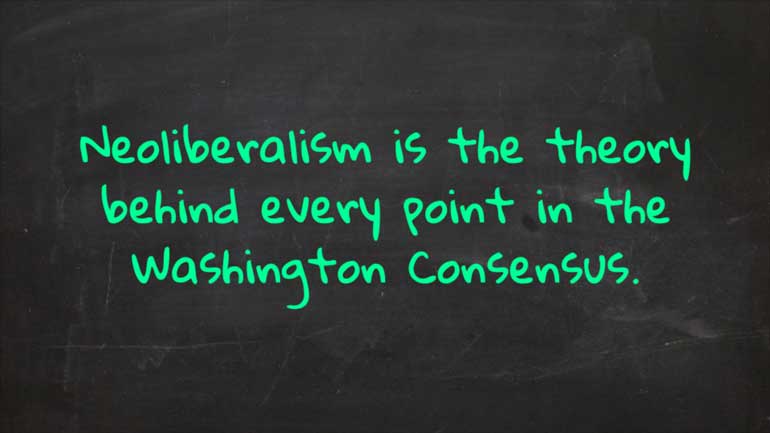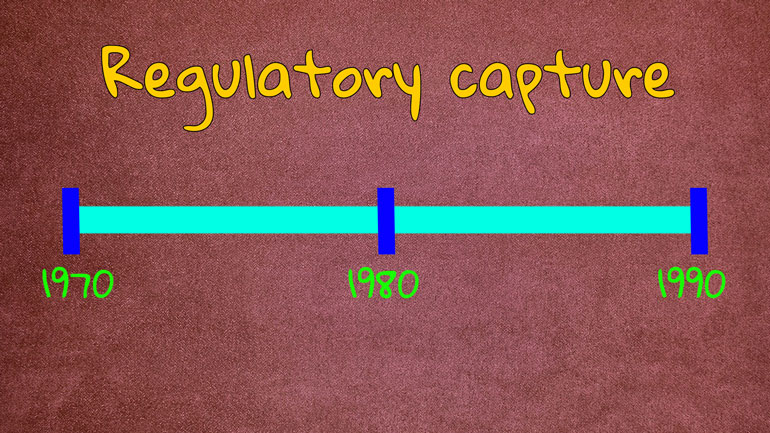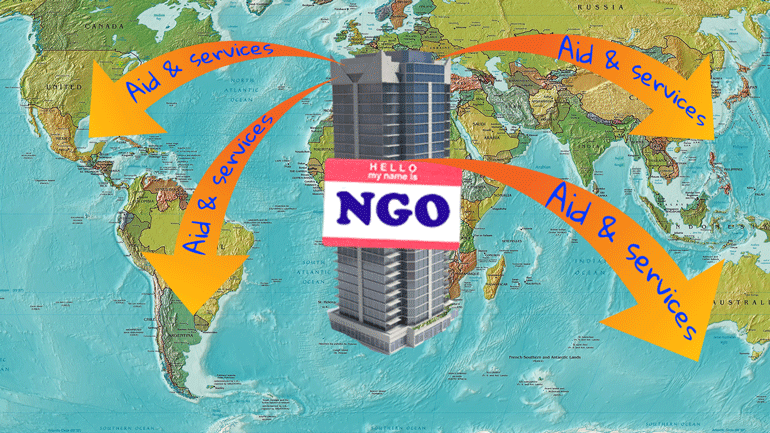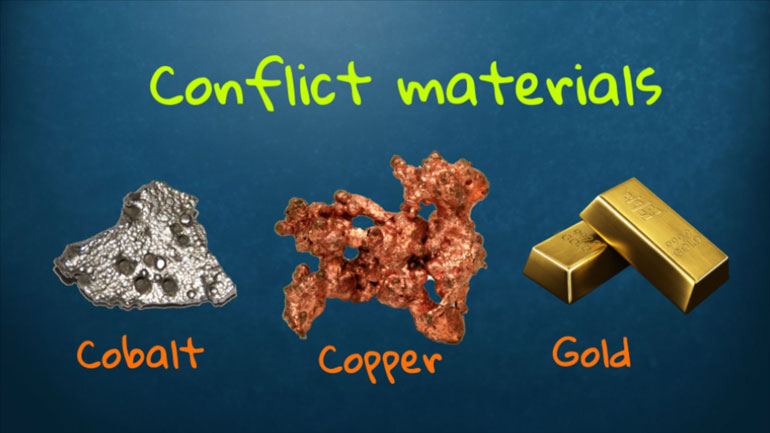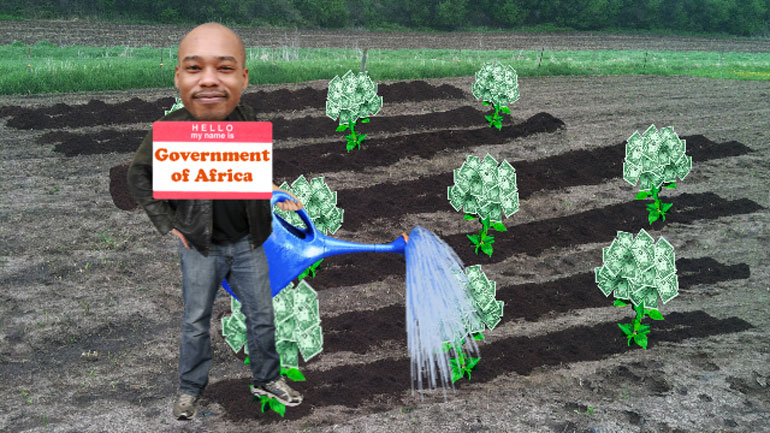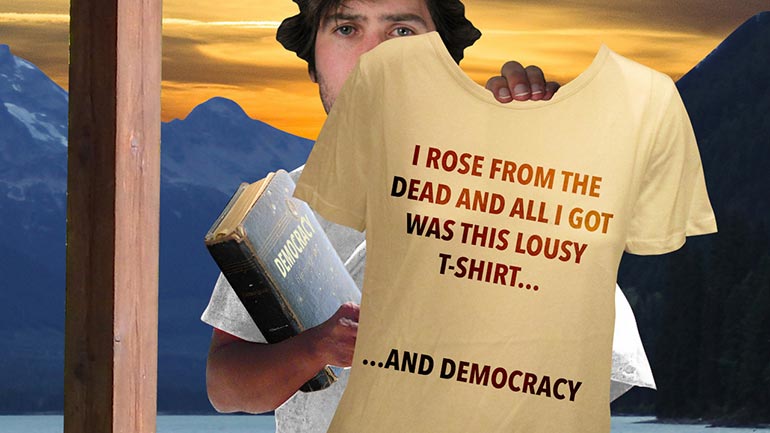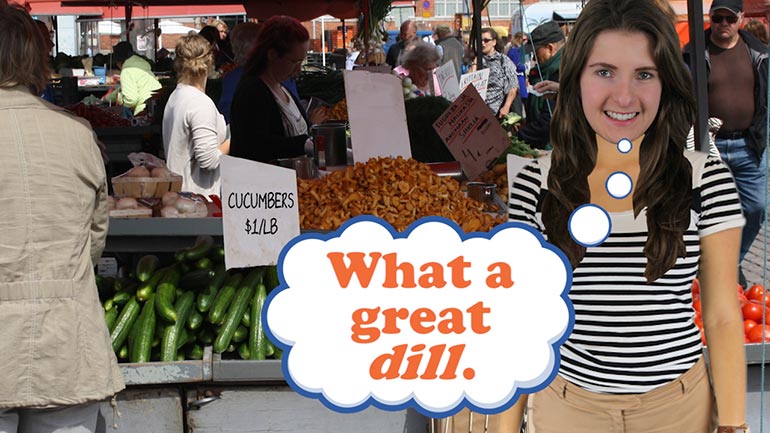ShmoopTube
Where Monty Python meets your 10th grade teacher.
Search Thousands of Shmoop Videos
African History Videos 63 videos
Home to the biggest river, the biggest desert, and some of the biggest land animals in the world, Africa is so much more than what most media would...
Stop everything and check this video out. This guy from Carthage named Hannibal used battle elephants. Battle. Elephants. Carthage has a pretty ric...
Today's lesson: Nubia. Remember not to call it Egypt Jr. to its face...it's kind of a sensitive issue.
African History 5.2 Brits Behaving Badly. Also, Dutch. Also, Zulus. 7 Views
Share It!
Description:
Ever heard of the "Footrests Empire"? Yeah, didn't think so.
Transcript
- 00:04
The Europeans had actually controlled North Africa for centuries before the colonial era. [Man with 'Europe' name badge playing a video game]
- 00:09
Starting around the year 1500, North Africa fell under the influence of the Ottomans.
- 00:14
They were a Muslim European/Middle Eastern empire centered in Constantinople, which is
- 00:20
modern day Istanbul.
- 00:21
The popular piece of furniture was also first imported to Europe from the Ottoman Empire, [Ottoman stood with footrests/ottomans]
Full Transcript
- 00:26
so…there’s one mystery solved.
- 00:28
The Ottomans…the human ones…ruled North Africa indirectly by forcing North African
- 00:33
kings to join their wars or send them tribute. [Ottoman holding a North African King to ransom]
- 00:36
It was not so much colonialism as it was… bullying other kings for their lunch money. [Ottoman taking money off the king]
- 00:42
The only exception was Egypt.
- 00:43
The Ottomans needed direct control of Egypt to guard their trade routes to the Indian
- 00:48
Ocean.
- 00:49
Basically, they needed the bridge troll to be their lackey. [A troll under a bridge]
- 00:52
Until about 1700, the Ottoman Empire was the big kahuna of Europe.
- 00:55
Their control of trade routes to the Indian Ocean through the Eastern Mediterranean and [Trade routes marked on a map]
- 01:00
over land through Egypt had landed them in the Number 1 position.
- 01:04
But we all know nobody can be Number 1 for long…
- 01:07
The Ottomans’ trade routes were becoming old news, because people were sailing around [Someone reading a newspaper]
- 01:11
the Cape of South Africa.
- 01:13
By 1700, the Ottomans were singing the blues and longing for their yesterdays. [Group of Ottomans crying together]
- 01:17
And by 1790 they were getting a serious beat-down from their enemies in Europe and Central Asia. [Europe and Central Asia hitting an Ottoman]
- 01:23
By the time 1798 rolled around, the Ottomans looked weak enough for the French to invade
- 01:27
Egypt and try to take over the Red Sea trade routes. [French move into Egypt on the map]
- 01:30
The Ottomans invited the British to help kick the French out.
- 01:33
But as Americans know, when you give the British an inch, pretty soon they're taxing your tea
- 01:37
and making you, uh…stamp everything. [British soldier stamping everything]
- 01:40
In 1805, the British installed a puppet ruler…and no, Gepetto wasn’t qualified for this gig…
- 01:45
…named, yes, Muhammad Ali.
- 01:48
It was a different Muhammad Ali... [Picture of Muhammad Ali]
- 01:49
But he did help Britain control trade routes to the Indian Ocean.
- 01:53
Because India was Britain's most important territory by a mile, Egypt became Britain's
- 01:59
second-most important colony, just because it had a route to India.
- 02:02
Egypt and Sudan became even bigger deals in the 1860s, when a French company completed [Egypt and Sudan get bigger]
- 02:07
a centuries-in-the-planning project.
- 02:10
What was it?
- 02:11
None other than the Suez Canal, which connects the Mediterranean to the Red Sea. [Footage of the Suez Canal]
- 02:16
Taxing and maintaining the Suez Canal became, and remains, one of the largest industries
- 02:20
in Egypt.
- 02:21
The rest of North Africa never became as important to Europe as Egypt.
- 02:25
But it did have a few advantages up its sleeve. [Man pulls the word 'advantages' out his sleeve]
- 02:27
Like…it could threaten the Mediterranean-Indian trade routes.
- 02:31
So the French king invaded Algeria in 1830 and expanded east to Tunisia in 1881. [Videos of soldiers advancing]
- 02:37
Control of the Mediterranean coast was dangerous for Britain.
- 02:39
But since Britain's navy was still terrifyingly large, the French started looking for more...creative...ways [Frenchmen puts on a mask]
- 02:46
to threaten the British.
- 02:47
The French struck out east from their colonies in West Africa, trying to get to the headwaters
- 02:52
of the Nile River.
- 02:53
This forced the British to scramble to colonize Sudan and Malawi.
- 02:57
This provoked a war with a hardline Islamic holy figure in Sudan in 1899… [Soldiers at war]
- 03:03
North African colonialism was a different beast than colonialism below the Sahara.
- 03:08
It was weird because European nations were mostly interested in political and military [Man reading 'Military Control Weekly']
- 03:12
control, not economic exploitation.
- 03:15
Local economies were left alone…higher education and secondary industry kept on keepin' on.
- 03:20
On top of that, Muslims and Orthodox Christians kept their religion instead of converting,
- 03:25
The colonial period in North Africa still…sucked. [Man kicks a rock and hurts his foot]
- 03:30
European governments mixed their colonial cocktail with secret police, mass murder, [Barman mixing a cocktail]
- 03:34
property theft, and police repression to keep their power.
- 03:38
With cocktails like this on the menu, we think countries ought to be like a billion years [Doorman tells European king to leave]
- 03:42
old before they’re allowed to drink…
Related Videos
Home to the biggest river, the biggest desert, and some of the biggest land animals in the world, Africa is so much more than what most media would...
Didn't get enough of the French Revolution the first time around? We've gotcha covered. Check out our second French Revolution video, preferably wi...
Famine is one of the biggest problems in Africa. Find out why it's such a complex problem, and what's being done to combat it.
